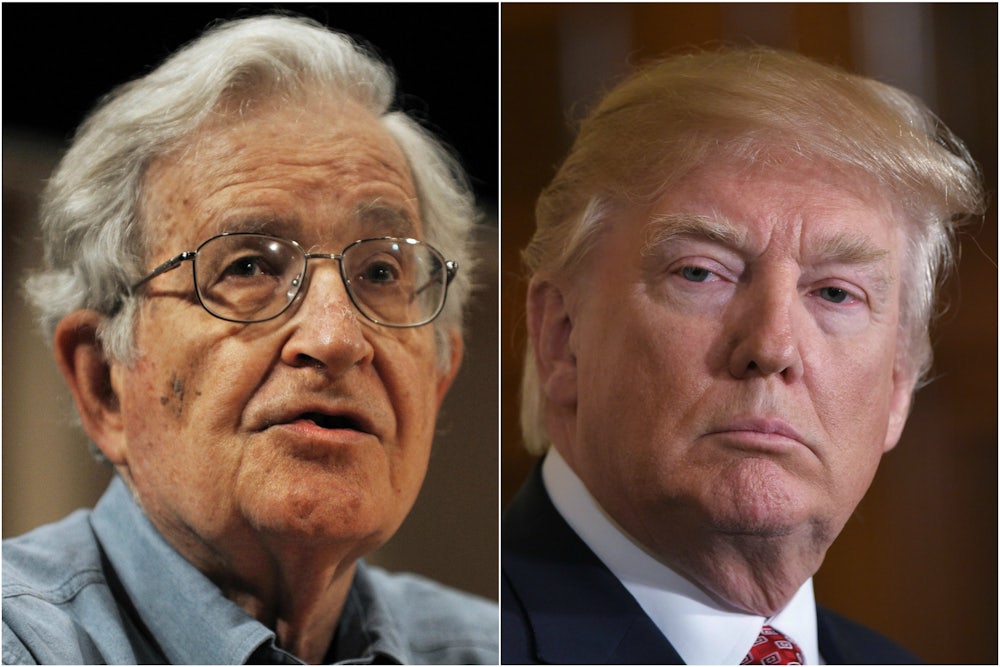In her famous 1984 speech at the Republican National Convention in Cleveland, diplomat Jeane Kirkpatrick, at the time America’s ambassador to the United Nations, characterized the Democrats as the party with the tendency to “blame America first.” The Democrats, according to Kirkpatrick, habitually criticized the foreign policy of the United States so severely that they exonerated the crimes of America’s enemies. “When Marxist dictators shoot their way to power in Central America, the...Democrats don’t blame the guerrillas and their Soviet allies, they blame United States policies of 100 years ago,” Kirkpatrick argued.
Her speech was one of the classic expressions of the conservative Republican foreign policy case against Democrats, who were allegedly so prone to relativism that they couldn’t discuss the crimes of America’s enemies without noting that America also had a checkered past. Such Democrats were supposedly incapable of appreciating American exceptionalism and the country’s special moral status as the protector of the Free World.
Kirkpatrick’s speech failed to describe most actual Democratic politicians: The nominee against Ronald Reagan that year was Walter Mondale, who, like all other mainstream Democrats, was a stalwart supporter of American global hegemony. But Kirkpatrick’s polemic did anticipate a figure who would adopt a rhetorical strategy of “blame America First”: The current Republican president.
In an interview on Fox News earlier this month, Bill O’Reilly asked Donald Trump if he respected Russian President Vladimir Putin. Trump said he did.
“He’s a killer, though,” O’Reilly said. “Putin’s a killer.”
“There are a lot of killers,” Trump replied. “We’ve got a lot of killers. What, you think our country’s so innocent?”
In some ways, Trump’s perspective on U.S. foreign policy resemble that of the radical left, as found in the works of famed linguist and political analyst Noam Chomsky. Trump often describes the goals of America as not the promotion of democracy and international order, but brutal capitalist pillaging. As he told members of the CIA when he visited their headquarters in January, “The old expression, ‘to the victor belong the spoils’—you remember. I always used to say, keep the oil.”
Trump and Chomsky are in basic agreement that the U.S. often does terrible things for amoral reasons. Both are skeptical of claims made by mainstream liberals and conservatives that America has any special moral status. The crucial difference is that Chomsky wants the U.S. to stop behaving in this manner, while Trump promises to be more effective in his brutality and looting. Trump, then, is a kind of Bizarro Chomsky—one bereft of a conscience, of any sense of right and wrong.
Chomsky himself feels that Trump’s bluntness about America’s criminal foreign policy has only a limited value. When I asked him, in an email, if there was anything salutary about Trump’s honesty, he replied, “When a Mafia Don says ‘hey, we kill people too,’ I’m not overwhelmed, though it may be ‘salutary’ in the context of the prevailing culture of denial.”
Trump’s willingness to see America as comparable to nations like Russia remains a minority position among Republicans. “There is no moral equivalence between that butcher and thug and KGB colonel and the United States of America, the country that Ronald Reagan used to call a shining city on a hill,” John McCain thundered in a speech on the Senate floor this month. “And to allege some kind of moral equivalence between the two is either terribly misinformed or incredibly biased.” McCain didn’t mention Trump, but coming just days after Trump’s O’Reilly interview, the speech was clearly meant as a rebuke.
Still, Trump is finding some rhetorical allies among Republicans, either because they share his foreign policy aims or because they want to ingratiate themselves to the president. This week, Iowa Senator Chuck Grassley told reporters from his state, “Russian involvement in our elections ought to be very seriously considered, just like the French politicians are very nervous about the Russian involvement in their elections. But I also said we don’t come to this table hands-free. I told you about the 1948 CIA involvement in the Italian elections where the communists were trying to take over the country and Russia was behind that and our CIA got involved to make sure. None of this stuff should be going on.”
Republican Congressman Dana Rohrabacher, who Trump had considered nominating for secretary of state, has drawn similar parallels between American and Russian culpability for international problems. In an interview last month with The Washington Examiner, he contextualized Russian interference in Ukraine by noting, “I don’t believe Putin started this. I believe the West started it when they overthrew a pro-Russian democratically-elected government that was on Russia’s border.”
While Trump’s comments that America has its “killers” and is not “so innocent” might seem surprising coming from a Republican president, they make more sense if we recognize that the GOP has long had an anti-internationalist wing, going back at least to the opposition to America’s entry into the League of Nations after World War I. Anti-internationalists (also sometimes called isolationists) like to throw cold water on claims of American moral superiority, which they see as justification for a globalist foreign policy. For many years this anti-internationalist faction, which runs from Robert Taft to Pat Buchanan, has been a minority faction in the party. With Trump, this minority faction not only took control of the party, but actually won the White House.
In an increasingly partisan America, the president’s bully pulpit is usually more effective for steering one’s own party rather than changing minds on the other side. Trump is using his White House perch to try to convince more Republicans to adopt his anti-internationalist politics. If enough of them do, Republicans will have given up the Reaganite pretense of America as a “city on the hill” and accepted a grim destiny as “killers” out to plunder the world.
